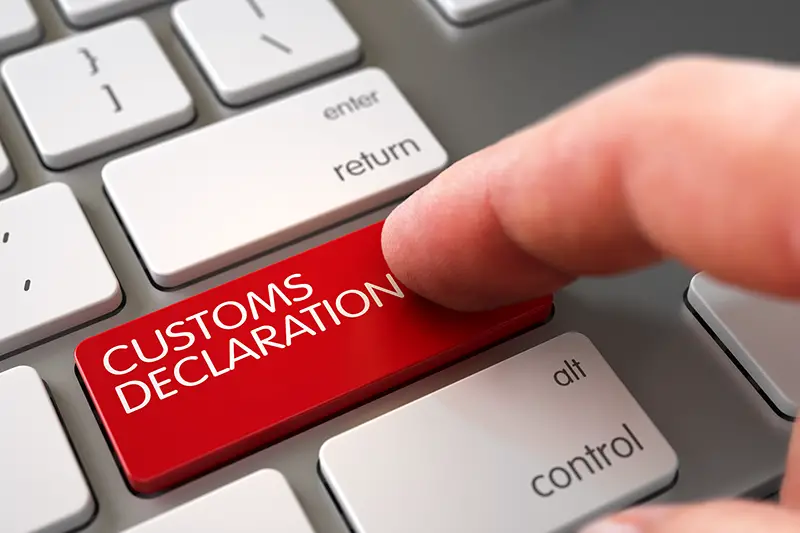Click here to get this post in PDF
Before goods are allowed to be imported to a country, they need to go through customs clearance procedure. It is not always an easy and straightforward process to handle. To successfully import goods, you need to be informed of any laws and regulations that apply to customs clearance procedures. Suppose you fail to meet these formal legalities. In that case, you’re risking having your supply chain interrupted, which may cause a significant monetary loss. As an online e-commerce business owner or an individual importing goods in Australia, you’ll want to know how customs clearance works.
The Value Of Goods
There are two types of goods that may require a customs clearance. These are business-to-business (B2B) and business-to-customer (B2C) goods.
B2B and B2C goods under AUD$1000
Goods with a value under AUD$1000 (except for goods arriving by post) are cleared from customs and border protection and you can import them free of customs taxes and duties unless you’re importing tobacco and alcohol. You’ll only need to fill out and submit a SAC (self-assessed clearance) declaration. A freight forwarder or customs broker will in most cases do a SAC declaration for you in exchange for a service fee. You’ll also need a permit for restricted goods such as incandescent lamps, glazed ceramic ware, chewing tobacco, woolpacks, knives and daggers. It is important to understand the customs in Australia before commencing a trade, to avoid any issues.
B2C and B2B goods over AUD$1000
For goods that are valued at AUD$1000 or more, you’ll need an electronically lodged Import Declaration that is made through the Integrated Cargo System (ICS).
You’re most likely going to be charged duty and taxes as:
- A consumer who purchased the good online (B2C)
- A business buying the goods from another business (B2B)
- A business that imports containers into Australia for online or retail outlet distribution
Imported goods are evaluated for Goods and Services Tax (GST) of 10% and customs duty. The duty rate is set by the tariff classification of the goods and depends on the nature of the goods. GST is also assessed on the Value of the Taxable Importation known (VoTI) which is a sum of:
- The customs worth
- Any payable duty
- The amount payable for the transportation and insurance of the goods to Australia
Customs and border protection could request a proof in the form of invoices or receipts to make sure the customs value claimed is true. If the declared value is accepted, the goods are delivered by Australia Post. If the goods have not passed the customs clearance, you’ll receive a First Notice by Australia Post.
If you’re an e-retailer, consider seeking professional help and guidance from licensed customs brokers or freight forwarders, especially for transactions over AUD$1000.
Self-Assessed (SAC) Declarations
As mentioned earlier, all imported goods that arrive in Australia by sea or air cargo must be declared on an electronically lodged SAC declaration. Imported goods valued at or below AUD$1000 arriving by international mail are exempt from making a SAC declaration.
There are two types of SAC declarations that you may be required to fill out:
SAC declaration (Full format)
A SAC declaration (Full Format) is used when a permit or approval is required and when there is a payable duty or GTS.
SAC declaration (short form)
A SAC declaration (short form) is used in instances when there’s only minimal information required. It’s used to pay duty and GST for imported goods, including alcohol and tobacco products. If you have a digital certificate registered in the ICS, you can make a SAC declaration (short form).
Usually, a carrier or freight forwarder notifies you of the arrival of imported goods and lets you know if you need to make a SAC declaration.
The most common problems that happen with customs clearance are:
- Incorrect duties
- Inaccurate cargo classification
- Consignee-related issues
- Shipping of hazardous goods
You can use the services of licensed customs brokers and SAC declaration service providers to make to help you with:
- Taxes and duties
- Tariff and costing concession
- Valuation
- Custom documentation
- Understanding international customs clearance laws and rules
Conclusion
Australia has a strict set of customs regulations and requirements that can be a little overwhelming to navigate all by yourself. Even more, if you’re an e-retailer. There are more than a few legal documents you need to fill out such as taxes, duties, and other charges to take care of. Customs clearance and adequately filled-out custom documentation are crucial aspects of maintaining an uninterrupted supply chain. By delegating this aspect of your business to professional customs brokers, you’re saving yourself from potential financial losses caused by undeclared, wrongly declared, and uncleared goods.
You may also like: How To Become An Importer and Exporter
Image source: Adobe.stock


